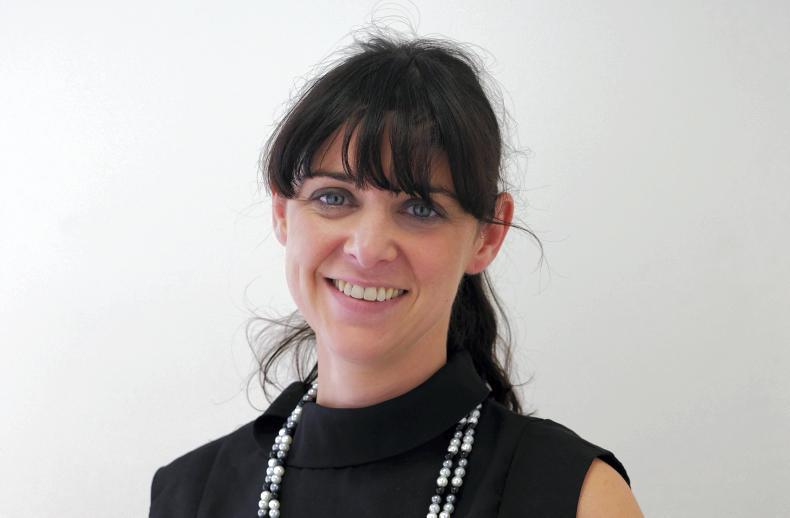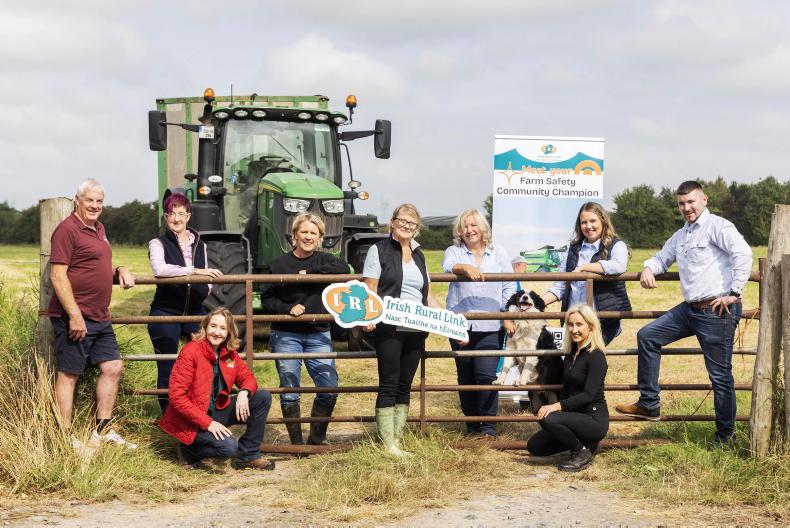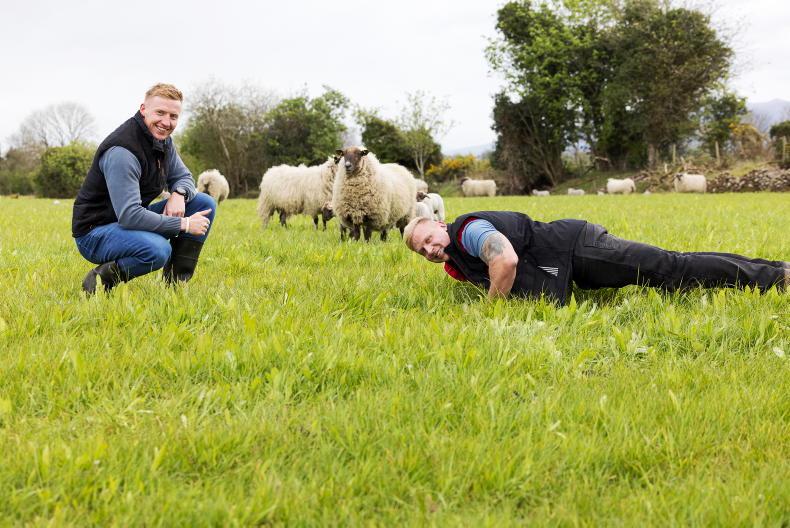As happy as I am for my French colleague Thomas Hubert that he can vote in Friday’s European and local elections, it is disappointing for me that I am actually out of the country and therefore unable to vote. I echo his sentiments in that I also feel that voting is very important.
I do think that it should be possible in this day and age, with all the technology we have, to cast a vote in advance or in some electronic format. I did look it up and there are certain circumstances under which a person is entitled to a postal vote but I do not fulfil any of the criteria, being neither in defence of the law (a garda) or in attack of it (in prison).
There were plenty of comments that I would not agree with and there were some really impressive candidates too
Despite my unavailability to vote, it didn’t stop me attending the Irish Farmers Association (IFA) EU election hustings in Kilkenny to inform my view of the candidates that will be our voice in Europe when massive decisions are made, including those on CAP and Brexit. There were plenty of comments that I would not agree with and there were some really impressive candidates too. I hope for agriculture, the ones that will support our sector make it through on Friday.
The key message that I took from this was that if women are on the ticket, they are as likely to get elected as anyone else
Also within the frame of Friday’s election, Anne O’Donoghue has a really interesting feature on women in Irish politics. The key message that I took from this was that if women are on the ticket, they are as likely to get elected as anyone else. However, that said, the barriers identified are the same or very similar to those found wherever there is a lack of gender diversity, namely; cash, culture, confidence, conventions and childcare. And once again, childcare is in the spotlight this week as it was revealed in the Irish Independent that the extension of the Early Childhood Care and Education (ECCE) scheme for a second year means that there is now a real lack of places for babies. I can completely relate to this as in my locality there is no creche that takes children under 10 months of age. This presents a serious issue for parents who want or need to return to work (or politics) after the 26 weeks of maternity leave.
However, it is not just MEPs and local councillors who will be decided upon on Friday. The public will also decide, by way of referendum, whether or not to remove the minimum waiting period for a divorce from the Constitution and decide if the country should recognise foreign divorces. As it stands, currently the Constitution only permits divorce when the spouses have lived apart for four of the previous five years, amongst a number of other criteria. If we vote in favour, the waiting period will be taken out of the Constitution and the Oireachtas would be in charge of legislating on the time period for divorce.
Two happy parents apart are better than two miserable parents together
Divorce was legalised in this country 24 years ago. The campaign was bitter, with slogans not worth repeating papered everywhere. The predictions did not come to pass, with the divorce rate in Ireland still one of the lowest in the EU. If people are clear about what they want, a shorter time period should be sufficient. My own parents were some of the first people to avail of it, having been legally separated for the four years and my motto has always been the same; two happy parents apart are better than two miserable parents together. My children are now blessed with six grandparents who spoil them and no it was not easy for anyone involved at the time, but I wouldn’t change it.
Read more
Explore our own Island for a holiday this year or explore tourism opportunities
Easy for all in east Cork
As happy as I am for my French colleague Thomas Hubert that he can vote in Friday’s European and local elections, it is disappointing for me that I am actually out of the country and therefore unable to vote. I echo his sentiments in that I also feel that voting is very important.
I do think that it should be possible in this day and age, with all the technology we have, to cast a vote in advance or in some electronic format. I did look it up and there are certain circumstances under which a person is entitled to a postal vote but I do not fulfil any of the criteria, being neither in defence of the law (a garda) or in attack of it (in prison).
There were plenty of comments that I would not agree with and there were some really impressive candidates too
Despite my unavailability to vote, it didn’t stop me attending the Irish Farmers Association (IFA) EU election hustings in Kilkenny to inform my view of the candidates that will be our voice in Europe when massive decisions are made, including those on CAP and Brexit. There were plenty of comments that I would not agree with and there were some really impressive candidates too. I hope for agriculture, the ones that will support our sector make it through on Friday.
The key message that I took from this was that if women are on the ticket, they are as likely to get elected as anyone else
Also within the frame of Friday’s election, Anne O’Donoghue has a really interesting feature on women in Irish politics. The key message that I took from this was that if women are on the ticket, they are as likely to get elected as anyone else. However, that said, the barriers identified are the same or very similar to those found wherever there is a lack of gender diversity, namely; cash, culture, confidence, conventions and childcare. And once again, childcare is in the spotlight this week as it was revealed in the Irish Independent that the extension of the Early Childhood Care and Education (ECCE) scheme for a second year means that there is now a real lack of places for babies. I can completely relate to this as in my locality there is no creche that takes children under 10 months of age. This presents a serious issue for parents who want or need to return to work (or politics) after the 26 weeks of maternity leave.
However, it is not just MEPs and local councillors who will be decided upon on Friday. The public will also decide, by way of referendum, whether or not to remove the minimum waiting period for a divorce from the Constitution and decide if the country should recognise foreign divorces. As it stands, currently the Constitution only permits divorce when the spouses have lived apart for four of the previous five years, amongst a number of other criteria. If we vote in favour, the waiting period will be taken out of the Constitution and the Oireachtas would be in charge of legislating on the time period for divorce.
Two happy parents apart are better than two miserable parents together
Divorce was legalised in this country 24 years ago. The campaign was bitter, with slogans not worth repeating papered everywhere. The predictions did not come to pass, with the divorce rate in Ireland still one of the lowest in the EU. If people are clear about what they want, a shorter time period should be sufficient. My own parents were some of the first people to avail of it, having been legally separated for the four years and my motto has always been the same; two happy parents apart are better than two miserable parents together. My children are now blessed with six grandparents who spoil them and no it was not easy for anyone involved at the time, but I wouldn’t change it.
Read more
Explore our own Island for a holiday this year or explore tourism opportunities
Easy for all in east Cork









SHARING OPTIONS